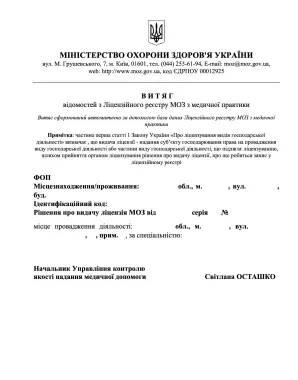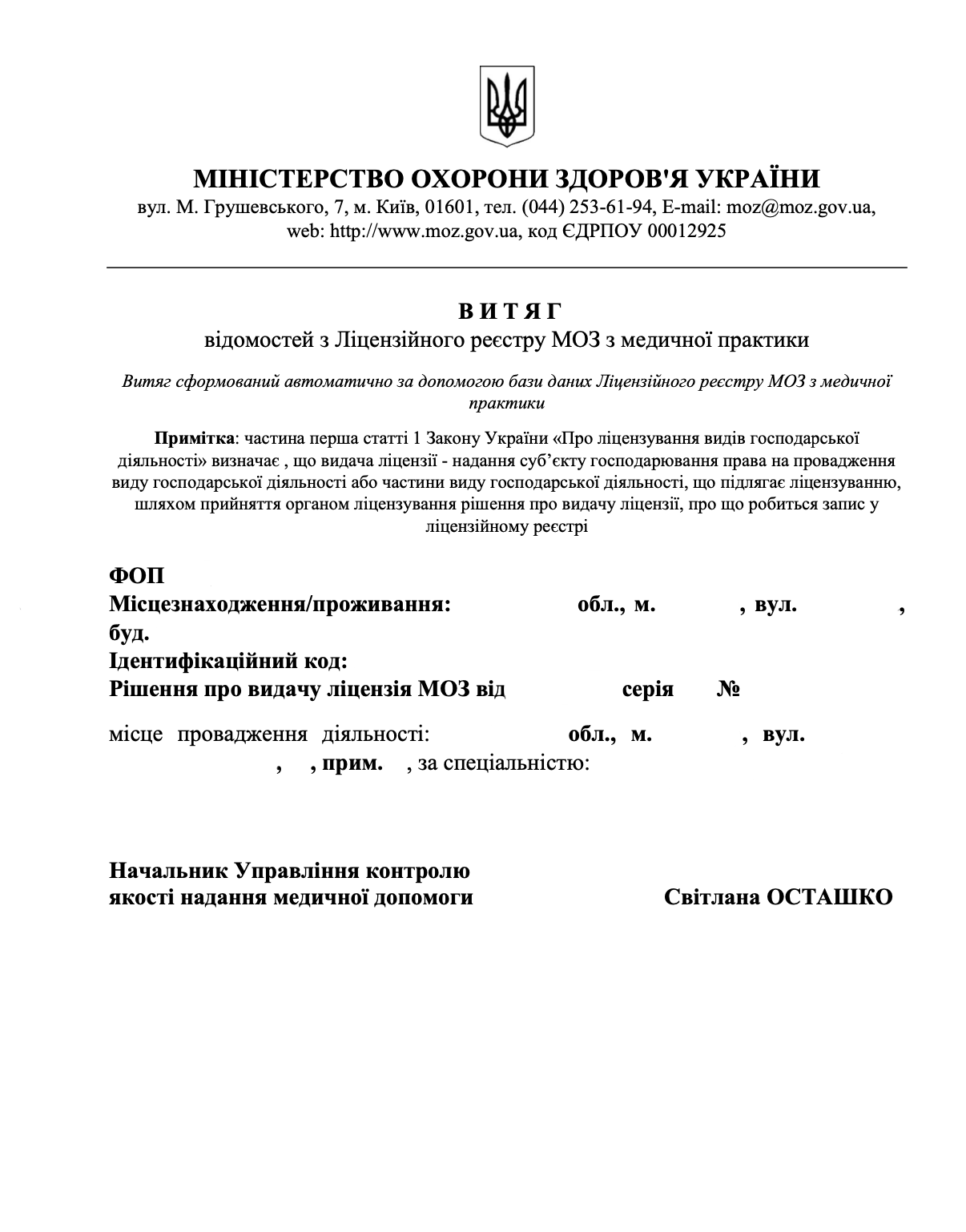|
Who’s the Сlient?
|
- The vast majority of the Clients contacted our firm after getting the refusal or even a number of refusals from the licensing authority (Ministry of Health of Ukraine);
- Refusals of the licensing authority were generally not informative enough for the Clients;
- Due to the large volume of documents, it was difficult to amend them without assistance.
|
|
How did the Client define the task? What solution did we suggest and why?
|
The Client’s key criteria for contractor selection were as follows:
- Obtaining a license in a short time. Pursuant to the law, the previous license of the new business entity formed through reorganization remains valid for 3 months. This period is provided as a transitional period for obtaining a new license.
- It is worth noting that in this case we had to obtain a new license, rather than to re-issue or amend the previous one. After the end of the 3-month period, the Client had to either obtain the license or suspend its activity until the license is obtained. However, this would make it impossible to sign contracts with the National Health Service, as well as to get funding for the primary health care services provided by the institution. And this would jeopardize the very existence of the institution.
- Economic feasibility of engaging a contractor. Although the expenditures of the utilities and the public sector are strictly regulated, the cost of legal services should be in line with the institution capabilities.
- Appropriateness of the solution suggested by the lawyers for the Client’s case. This criterion was based on the two previous ones and required that both financial and time expenses of the Client allow to duly obtain the license and no excessive financial investments are made into the process.
In order to achieve the Clients’ objectives within a short time frame, we provided each of them with a team headed by a senior lawyer. This allowed us to effectively distribute the technical and legal aspects of the work. The relevant Clients’ employees were also involved in the process.
At the initial stage, we discussed and excluded problem points that may hinder the Client from obtaining a license in due time. For example, if there were several doctors of the same specialty, and one of them did not meet the qualification requirements, such a doctor was excluded from the documents by agreement with the Client, because this would take much time to bring him/her into compliance with the requirements. The Clients could add the doctor to the licence after they obtained it.
First of all, our company’s lawyers worked with the refusals of the Ministry of Health, and depending on the time available, searched for hidden potential grounds for refusal, which hadn’t been indicated by the Ministry of Health. |
|
What were the challenges in implementing the solution?
|
- Since in most cases, the Clients have already applied for a license on their own, and despite the available draft versions of the statements and previous decisions of the Ministry of Health specifying the reasons for refusal, our lawyers usually had little time to process documents, identify potential grounds for refusal, which were not indicated by the Ministry of Health for some reasons and the like;
- Every institution had personnel problems (lack of qualification in accordance with the requirements of the Ministry of Health), as well as failed to identify medical devices and equipment (name, model and sometimes even the year of production);
- Due to the significant amount of work and limited financial resources, our team had to develop various options for cooperation with the Client in order to optimize the time expenditures. In case of institutions with 10-20 business addresses (including outpatient clinics, feldsher-midwife stations), where the documents can contain several hundred pages, our company, as a contractor, was faced with a challenge of choosing the most cost-effective option and maintaining our traditional quality of services and guarantees of results.
|
|
Lawyer’s train of ideas and approach to implementing the solution
|
Given the time and financial limits, our lawyers worked in the following key directions:
- Analyzing and amending documents in accordance with existing refusals of the Ministry of Health;
- Identification of other deficiencies that were not specified in the refusal of the Ministry of Health, but could arise due to amending the statements in accordance with the refusal of the Ministry of Health;
- Studying the possibility of leaving particularly problematic issues (e.g. non-compliance of personnel with the educational and qualification requirements of the Ministry of Health) in the documents in order to speed up the licensing procedure and bring them into conformity through the amendment procedure;
Optimization of cooperation with human resources departments and other employees of the medical institutions (for example, their employees entered the information in some statements for further processing by our lawyers).
|
|
How did the Client benefit from our cooperation? Why wouldn't the Client do it without our assistance?
|
- We helped our Clients to ensure business continuity (licenses were obtained within the transitional period established by law);
- Medical institutions represented by chief physicians, managed to sign agreements with the National Health Service, which is one of the key sources of funding for such institutions;
- Maximum time and emotional relief for human resources departments, chief physicians and other staff of the medical institutions, as compared to independent preparation for licensing.
- As the practice shows, it is very difficult for the majority of public utilities, especially those with a large number of staff and business addresses, to independently go through the bureaucratic procedures of licensing of medical practice without a narrow expertise and practical experience. While regulations in this area are not subject to regular amendments, the practice of the licensing authority in terms of interpretation of such regulations changes quite often. Thus, you need to have sufficient experience to properly prepare all documents.
|
|
Who should use our services? In what case?
|
- Managers (chief physicians, directors, chiefs of departments, etc.) of municipal non-profit enterprises (both newly established and reorganized)
- Leaders of local councils, united territorial communities, other territorial units within which the MNP (municipal non-profit enterprise) is established.
|





